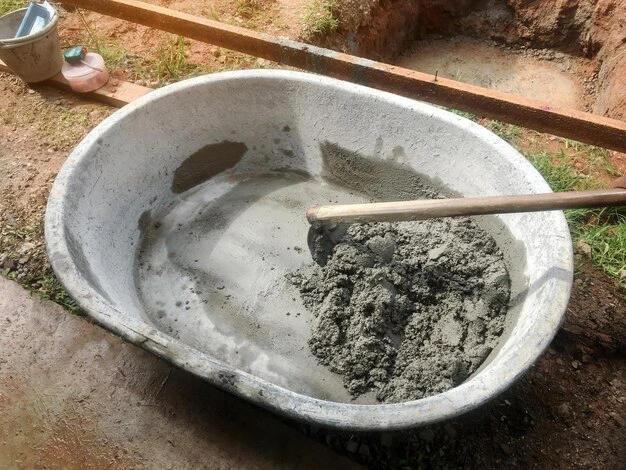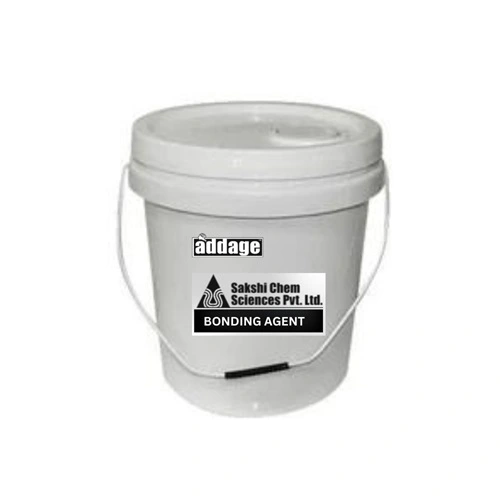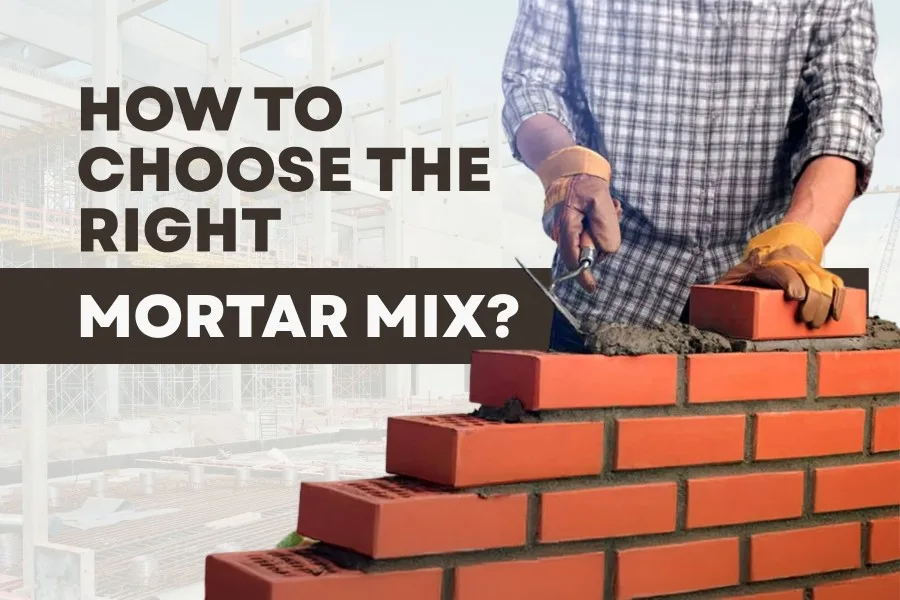When doing a masonry project, one key choice you will need to make is what type of mortar mix you will use. Whether mere working with a few bricks for a backyard BBQ, restoring an old building, or beginning a stone or brick project, mortar is an important choice because it not only impacts the stability and strength of your work but also the aesthetics of it.
In this guide, we will discuss mortar mix benefits and strengths of each different type of mortar mix available as well as how to choose the one that suits your needs. We will also discuss how construction chemicals improve the performance of mortar.
Table of Contents
Benefits of Different Types of Mortar Mixes
Mortar is not a one-size-fits-all. There are several types of mortar mixes of varying strengths and ideal use cases to choose from. Selecting the proper mortar mix can mean the difference between a 5 year project and a 5 week project or poor performance under pressure.
1. Portland Cement Mortar
One of the most commonly used mortars is Portland cement mortar. This is a mixture of Portland cement, sand, and water. There is good reason for its popularity: it is strong, easy to apply, and it can be leveraged for use on both interior and exterior applications.
If you are looking for an easy and straightforward option with reliability, Portland cement mortar is likely your best bet.
2. Lime Mortar
Lime mortar has been utilized for centuries and is a mix of lime, sand, and water. Lime mortar has the benefits of flexibility and breathability, making it suitable for older buildings and structures since they expands and contracts with temperature and humidity changes.
It is also less likely to crack, which is an advantage in regions that experience settling or seismic activity.

3. Epoxy Mortar
Epoxy mortar is the option when performing heavy-duty projects that have exposure to chemicals or moisture. Epoxy mortar is a mix of epoxy resin, sand, and a hardener.
This combination produces a superior bond that is not only chemical resistant but can withstand high-moisture or industrial conditions. Epoxy mortar is best for use in commercial kitchens, laboratories, or factories.
4. Rapid Set Mortar
Sometimes, time is of the essence. Rapid-set mortar is designed to cure quickly for this very reason. Emergency repairs or projects with a time crunch use rapid-set mortar. It enables you to move forward with the next step sooner, while still retaining strength and durability.
Considerations When Choosing A Mortar Mix
Choosing the right mixture of mortar for your project is more than strength alone—choosing the appropriate mix for your specific project is important. Below are some considerations that will factor in choosing the appropriate mortar mix.
1. Type of Project
Different projects require different types of mortar. For example, a decorative garden wall does not need as much strength as a structural foundation.
Load-bearing walls or retaining walls needs a high strength, such as Type M or S mortar, whereas a purely decorative project may only need Type N mortar.
2. Materials Being Used
The type of masonry units you are using, whether they are bricks, stones, or concrete blocks, will influence the type of mortar you should choose.
If you are using softer masonry units, like old bricks, lime mortar is better suited to them. Stronger masonry units like concrete blocks should employ stronger mortars such as Type S or M.
3. Environmental Conditions
The environment, or geographic location of your project also affects the type of mortar needed. Will there be exposure to rain, snow, or extreme heat? In cold weather climates a mortar mix that has resistance to freeze and thaw is very important.
If you are in a wet environment then you may want to consider how much water resistance the mortar has.
If the mortared walls are exposed to salts (like with ice melting products on a road or in a coastal area), you will need to take into consideration any special requirements for the chosen mortar.
4. Setting Time
Some mortar mixes take more/less time to set than others. If you need to finish your project quickly or in cooler weather, you may benefit from a quick setting mix. However, if you use a slower setting mortar this may allow you to stay longer in adjusting the masonry unit placement.
Types of Mortar Mixes and Their Uses
Across the board, there are multiple types of mortar that are identified and listed, typically by letter:
Type N: A standard (general purpose) mixture for exterior and interior, above-ground walls.
Type S: Stronger than Type N, suitable for structural walls and in locations where the wall can be subjected to lateral stress, such as exterior walls.
Type M: The strongest of the common mixtures; an appropriate mortar for foundations and retaining walls.
Type O: A weak mortar used for non-load-bearing walls, and for extensive repair work latently discovered once a wall is opened up.
Now that you know the different types of mortar, you know how to choose the one that is right for the job.
Related Post: Hidden Differences Between Type S Mortar and Type N Mortar
Step 1. Type of Work
You need to first determine if the work is structural, decorative, or volunteering to restore a wall. This will help provide the information you need to establish a context for your selection.
Step 2. What are the Conditions?
When masonry ages, the mortar ages with it, so understanding the weather, moisture, extreme temperature changes, and whether or not chemicals (like salt) are likely in the neighbourhood is essential.
Step 3. What Type of Masonry Units?
If it is brick, stone, or block, each of those needs mortar of the same compatibility if you want attachment, adhesion, and performance.
Step 4. What Type of Mortar?
You know what you are working on, you have considered conditions, you know the type of masonry; it just leaves you with the determination to rightly select from Types N, S, M, O, Lime mortar, or Epoxy.
Step 5: Add Construction Chemicals if Needed
Construction chemicals are useful if you want increased flexibility in your project or you want to speed it faster.
How Construction Chemicals Help Mortar?
Construction chemicals can make a big difference in the workability, durability, and performance of mortar. Listed below are the most common chemicals used in mortar:
Plasticizers: Plasticizers allow flow and workability of mortar without too much water.
Accelerators: Accelerators allow for a faster setting time for mortars, useful in cold weather.
Air-Entraining Agents: Allow for tiny air bubbles which increase freeze-thaw resistance.
Waterproofing Agents: Waterproof the mortar.
Bonding Agents: Bonding Agents allow old mortar to bond with new mortar.


These construction chemicals can also be very valuable when trying to address particularly challenging environments or should a project have very specific or specialized results.
Real World Tips from Masonry Professionals
Tip 1: Always Test First
Always test the mortar mix you would like to use on a small section first before committing to a full batch. Make sure you are happy with the consistency, bonding, and appearance.
Tip 2: Don’t Use Too Much Water
Always remember that too much water is the enemy. Follow the manufacturer’s instructions for mixing as closely as you can.
Tip 3: Store Materials Entirely in a dry place.
Cement, lime, and other ingredients, can naturally lump together, but extremes of moisture and air exposure can lead to chemical changes.
Tip 4: Conditions Matter
What works in a dry, hot climate may not work in a wet, cold climate.
Tip 5: Maintenance Matters
While the best mix is always important, mortar degrades over time, and having regular inspections and repointing of your structure can extend its life.
Conclusion
Choosing a proper mortar mix doesn’t just mean selecting a bag from a shelf. It means knowing your materials, your environment, and your project.
There are traditional lime mortars to the more sophisticated epoxy, and many things in between, along with construction chemicals that may provide a solution to nearly every application.
If you adhere to the tips and steps above, you will be able to select a mortar mix that produces a durable, damage-resistant, and visually appealing structure, whatever the application.
If at any point you are not sure what to do, it may be worthwhile taking a few minutes to find a professional in construction who can point you in the right direction.
Whether a simple garden wall or complex industrial application, a good selection will result in a more robust ending project that you won’t have to deal with later.
Q&A: Common Questions About Mortar Mixes
Q: What’s the best mortar for a DIY project for a beginner?
A: Type N is usually the easiest to work with and is appropriate for most general-purpose applications.
Q: Can I use the same mortar mix for interior walls and exterior walls?
A: Sometimes yes. However, exterior walls typically require stronger or weather-resistant mortar, like Type S.
Q: Is it right to mix different mortar types?
A: It is best to avoid mixing mortar types unless you have the expertise of a professional. Mixing mortar types can affect strenghth and bonding.
Q: How long does it take for mortar to completely cure?
A: Most mortars cure in about 28 days, but they will set long before that.
Q: Why is my mortar cracking after just a couple of days?
A: Common reasons include too much water, poor mixing, or choosing the wrong mortar type for the conditions.
Sagar Telrandhe is a Construction Engineer with a B.Tech in Construction Engineering & Management. Passionate about infrastructure development, project planning, and sustainable construction, he specializes in modern construction techniques, project execution, and quality management, contributing to efficient and innovative building.

